If the current arts crunch has demonstrated anything, it is the resilience of performing artists. All three of the founding artistic directors we spoke with recently emphasized the same trends that many small- and medium-sized groups are finding nationwide: the pandemic has slowed but not stopped their activities, the funding community has stood steadfastly by their sides, and the new artistic landscape has pushed them to innovate.
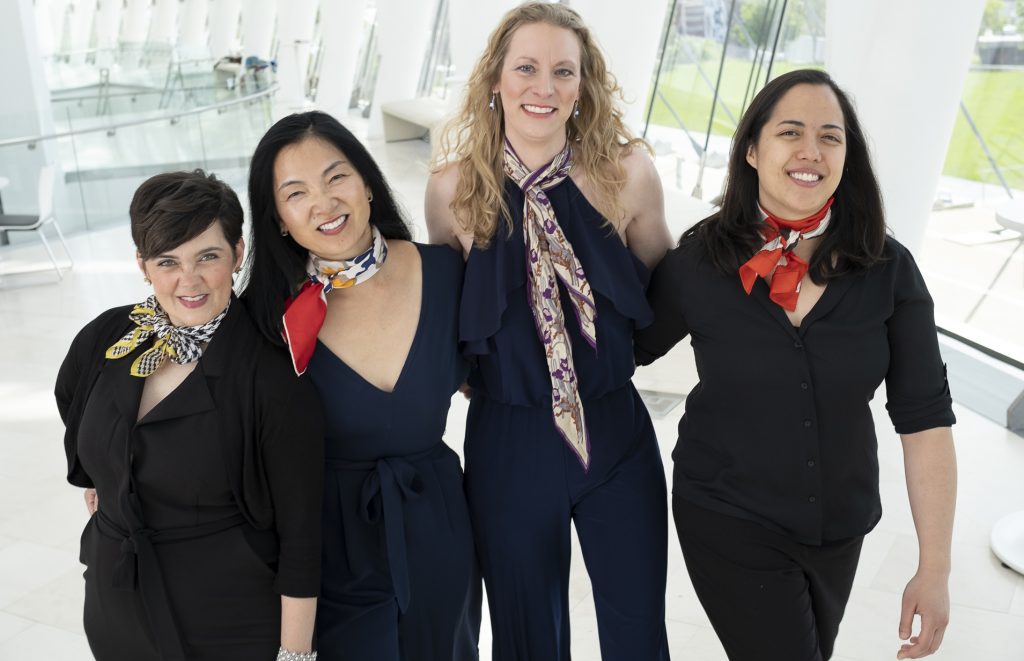
Bach Aria Soloists’ core group consists of (from left) Sarah Tannehill Anderson, Elizabeth Suh Lane, Elisa Bickers, and Hannah Collins. / Photo by Dan White
“The one thing we’re saying at Bach Aria Soloists is that we want to deliver,” said artistic director Elizabeth Suh Lane, who founded her unique chamber ensemble in 2000 to perform music from all eras. “We have to be flexible, and we definitely have to look at the health standards every couple of weeks. … If we can’t meet in public, we might have to make it a virtual concert.”
The Soloists’ core group of four has remained incredibly busy this year with its Neighborhood Garden Concertsand a series of BAS at the Parkprograms. It helps that they, like most smaller groups, don’t have to deal with the enormous budgets and payrolls of Kansas City Symphony or the Lyric Opera of Kansas City.
“Being a chamber ensemble, we are really blessed,” Elizabeth said. “We are still able to actually get together to do rehearsals.” The musicians realize that at any given moment a live concert might have to become a virtual concert (as happened recently with the BAS Holiday Concert), and they are ready for that eventuality.
Elizabeth finds that foundation and individual giving has remained strong, even while not operating at normal levels. “We’ve received pledges from our wonderful family foundations,” Elizabeth said. “We figured we were going to lose money this season, but I’m paying the musicians, I would venture to say, better than just about anyone else would pay them.”
To be sure, the group began the year on sound financial footing. “Because of the fact that we’ve ‘managed’ fairly well in the past gives me, the board, and our president the confidence to know that we will survive this year.”
As with many local artists, Elizabeth has used this time to conjure a whole array of new ideas for concerts, recordings, and even films. One project she is mulling over is a possible documentary-type film of the ensemble’s Don Quixote program, a combination of music and literary readings that has brought the Soloists great acclaim. “Being flexible is perfect for a time like this,” she said. “I don’t get stressed about having to change something suddenly, though sometimes getting other people to come along with it is a different story. There’s a lot of ‘relationship massaging’ sometimes.”
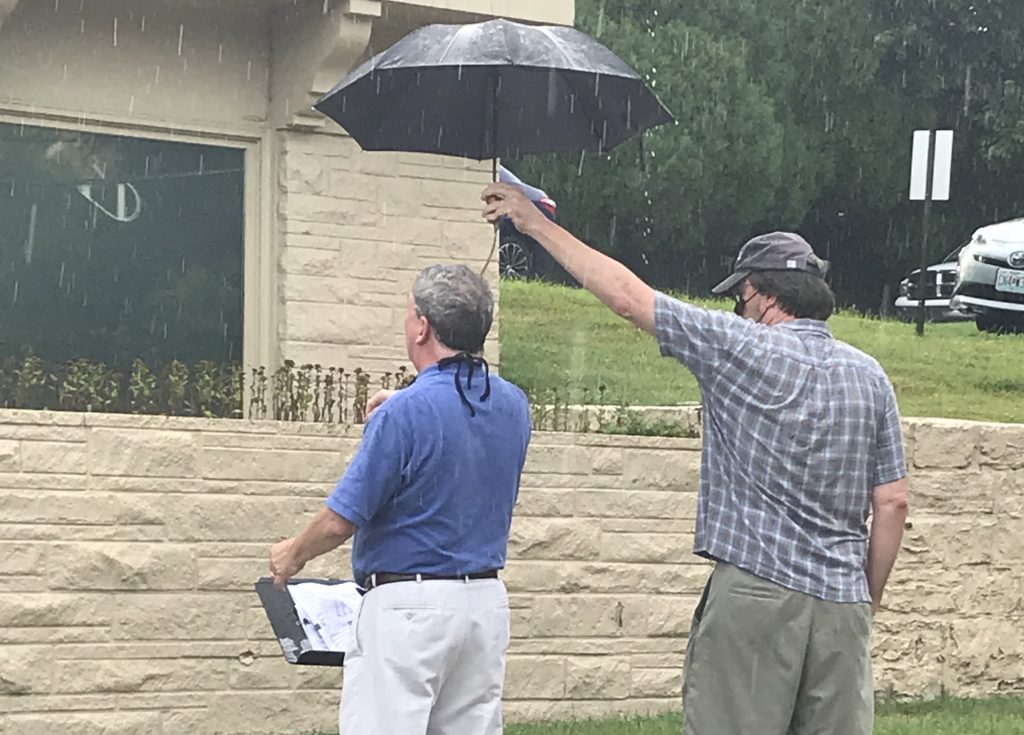
Audiences showed up for the Festival Singers’ ‘window concerts’ even during summer showers. / Photo courtesy of the William Baker Festival Singers
The William Baker Festival Singers has never stopped performing, either. This summer the choir ran an astonishing series of “window concerts,” in which singers stood in the second-story windows of the group’s Roeland Park offices and sang out into the yard. Each Sunday evening, people would bring lawn chairs and listen to early choral music sung through screen windows from a safe distance.
On one occasion, a driving downpour threatened to wash out the performance. “We were getting ready to cancel,” William said, “and we looked out the windows and there were people sitting outside in their chairs. We sang to 40 people sitting in the driving rain, because they were so hungry to hear real music that wasn’t on a screen.”
The conductor is determined to continue the Singers’ regular activities as consistently as possible. “We do not allow the words ‘new normal’ to be uttered around our chorus,” said William, who founded the ensemble in 1998 and currently has nearly all of his 50 singers on board for the season. “We are approaching this as a serious but temporary situation that requires dramatic but temporary measures.”
Choral singing in enclosed spaces has been deemed perilous for spreading COVID-19, so the Festival Singers go to extraordinary lengths to stay safe. “We are putting our energy and money into finding a way to do live performances in front of an audience as best as we can now,” William said, “and to condition ourselves to come busting out of the gate when this thing is over.”
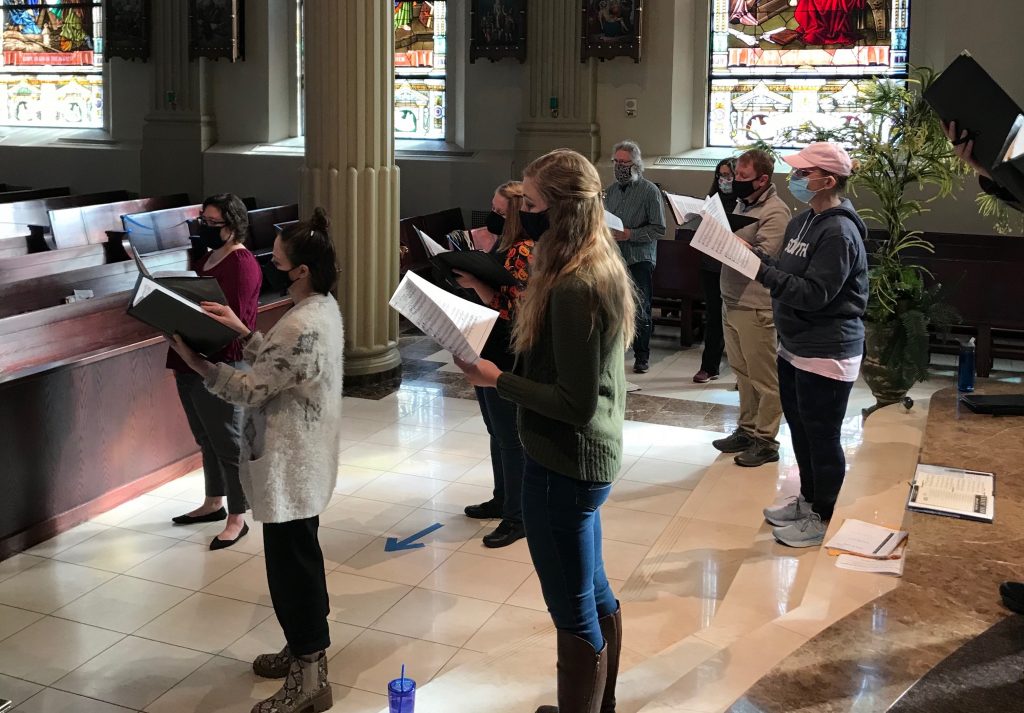
Choral rehearsals and concerts today often require drastic measures in order to remain safe. / Photo courtesy of the William Baker Festival Singers
The Festival Singers’ measures include distanced rehearsals (sometimes outdoors), constant use of masks, and widely spaced performances in large churches such as the Cathedral of the Immaculate Conception. “If there’s a one-in-a-thousand chance that a mask can prevent someone from getting COVID-19, let’s wear it,” he said.
Artistic growth has become a natural, if inadvertent, byproduct of these measures. “Wearing masks takes about 10 to 15 percent off the resonance of the sound,” William said, “and so you have to fight harder for enunciation. Once this is over, our skills are going to be a lot stronger.”
William’s group has also found that donors remain faithful, if cautious. “We’re seeing the same number of individuals donating to our annual campaign, but the amount of the gifts is lower,” he said. “We’re having to shake the trees a little harder.”
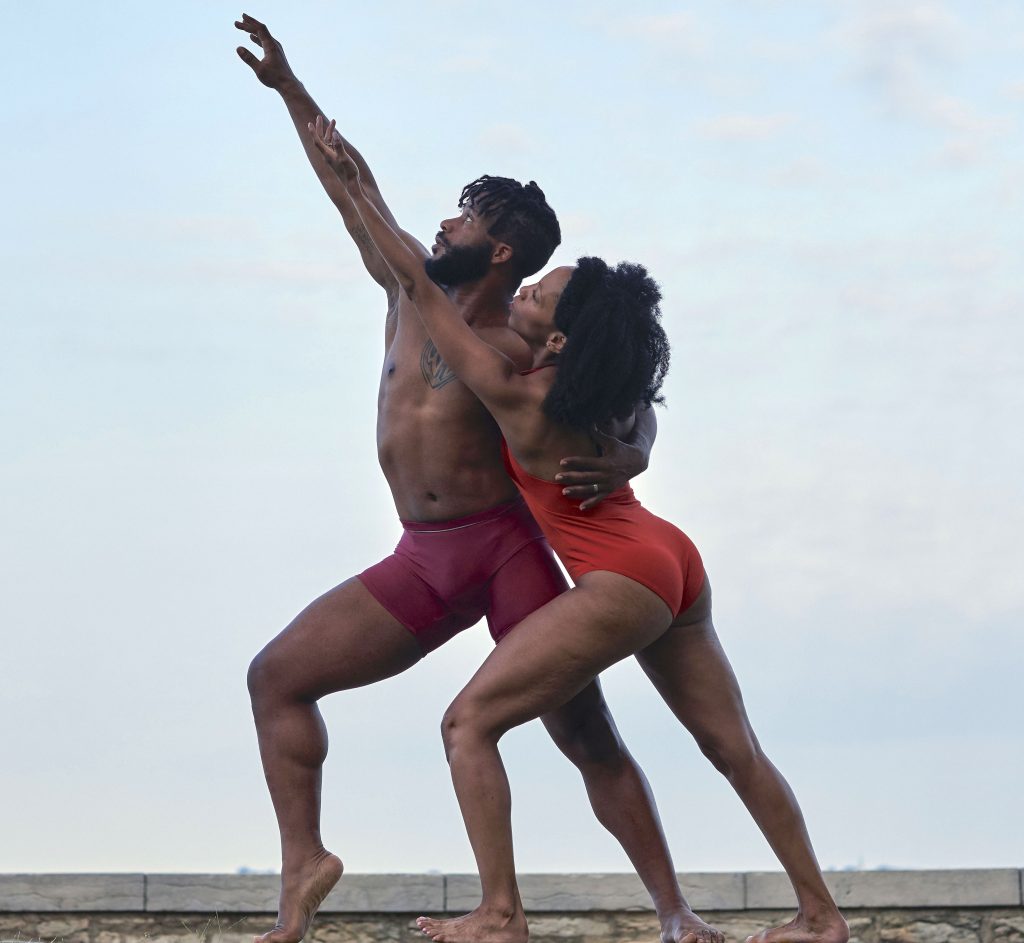
Latra Wilson and Winston Dynamite Brown are among the regular performers in the Owen/Cox Dance Group. / Photo by Kenny Johnson
Dance presents a different set of challenges, yet again it’s the smaller groups that have remained resilient under COVID-19. For the Owen/Cox Dance Group’s contribution to the 2020 New Dance Partners program, the dancers “rehearsed entirely on Zoom with the choreographer in New York,” said Jennifer Owen, who founded the company with her husband, Brad Cox, in 2007.
Choreographer Caili Quan’s Keeping Time was subsequently filmed in a variety of locations around the Kansas City metro region and in Denver and Minneapolis, with resources provided by the Carlsen Center, which hosts the event.
Dance is an art form that calls for extensive physical contact, so COVID-19 has impacted it enormously. For Owen/Cox’s upcoming collaboration featuring excerpts from the Kansas City Chorale’s Rachmaninoff: All-Night Vigil, only three artists are dancing and “we won’t have them dancing on the stage at the same time,” Jennifer said.
As with the Soloists and the Festival Singers, the Group’s compactness is a virtue. “We’re a small organization,” Jennifer said. “There are three of us, and we don’t have a building where we have to keep utilities paid.”
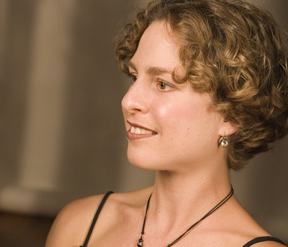
Jennifer Owen
She is determined to keep making dance. “If we’re finding a shortfall, we will produce what we can produce,” Jennifer said. Donors have, on the whole, remained faithful to the organization’s mission. “Plus, people just check in with us and say, ‘How are you doing?’ So we can feel the warmth and the caring from patrons. They want to help.”
Although artists are suffering from loss of income, Kansas City’s non-profits are determined to sustain the energy. “The arts are going to live on,” Jennifer said, “because artists are always going to want to create. The dancers I work with are so eager to perform, to be creating things, even if it’s in the grass somewhere. You can’t stop the creators.”
Nevertheless “the arts need help,” she added, and from a range of sources. Dancers don’t have “a huge nest-egg that they’ve been building up while they’re auditioning for jobs. But we need the arts: They are going to be an important aspect of people’s healing and coming together.”
—By Paul Horsley
For the most up-to-date information about the activities of the above groups, go to bachariasoloists.com, festivalsingers.org, and owencoxdance.org. To reach Paul Horsley, performing arts editor; send an email to paul@kcindependent.com or find him on Facebook (paul.horsley.501) or Twitter (@phorsleycritic).